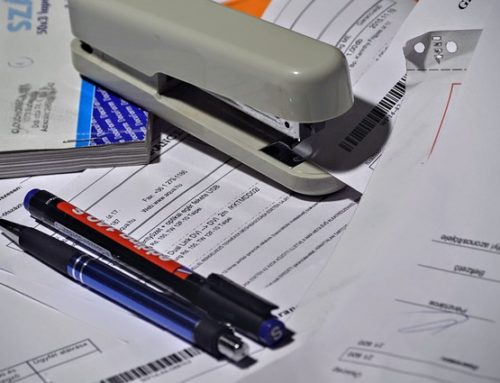When you sign a contract you probably do it hoping it’s more or less a formality. You plan to uphold your end of the contract. You trust the other entity plans to uphold their end.
It’s nice to have the document to refer back to, just in case someone forgets. But you don’t expect to have to fight over it.
Still, contractual disputes do happen, and they happen quite often.
#1) The agreement wasn’t written well to begin with.
It’s usually best to have an attorney write your contract, or at least to look over a contract before you sign one.
Otherwise, you could end up with a contract that’s unenforceable, or one which causes a lot of problems.
For example, your contract could contain language that’s so ambiguous that it’s impossible to tell who must do what. If your contract leaves another party with a lot of wriggle room you should anticipate the other party will make full use of it.
Your contract could also contain language that’s so garbled and difficult to understand that even parties who are attempting to act in good faith can’t satisfy one another. They don’t know how. The contract’s written too poorly.
And your contract could leave out vital parts of the agreement you really needed addressed, which means there are plenty of issues for you and the other party to struggle over.
This problem can cost you a lot of money. Just ask Nashville’s Ray Bell Construction Company, who lost nearly $3 million dollars thanks to a badly written contract.
#2) Someone breached the contract, and now denies it.
People breach contracts all the time. And they usually don’t run right up to you to admit it.
Instead, you’re usually left trying to demonstrate how, where, and when they broke the contract.
Sometimes they don’t even realize they’ve broken it. Sometimes the breach is quite willful. And sometimes the contract failed to offer a timeline or some other vital provision which may have gotten you some relief just a little faster.
Either way, there’s not much you can do about it unless you’re willing to fight over it. At that point, a contract dispute begins.
#3) Other binding agreements were made.
In Tennessee it’s possible to create a verbal agreement, an implied contract, or an enforceable agreement via quickly fired off emails. Sometimes your conduct and the conduct of the other entity imply an agreement exists even if you don’t know you’ve created one.
You can even create an implied contract via a “pattern of dealings.” That is, two parties did business with one another a certain way over a pattern of years, and as such an agreement developed and was implied.
If the other party ignores this agreement or breaches it you can still get relief. You just have to prove the agreement existed and that a breach occurred. Of course, the other party can do the same if it seems you’ve failed to uphold your part of the agreement.
Not all verbal, informal, or implied agreements may be enforced this way. In Tennessee, you must get the following sorts of agreements in writing for them to be enforceable:
- Any agreement that will take over a year to complete.
- Any agreement where you’re assuming someone else’s debt.
- Any agreement where you’re buying or selling real property.
- Any lease agreement lasting longer than one year.
- Any agreement where you’re buying or selling anything worth $500 or more.
Keep in mind you don’t need legal language, notaries, or other trappings to create a written agreement. You can write an email agreeing to pay a person for a $600 piece of property and they can say, “Okay, I’ll send it out.” A contract just got created. If you pay and the other person doesn’t send the item out you can sue them to make them do it. If they send the item and you don’t pay, you’re the one breaching your contract, and they can pursue those funds.
Some of these agreements can also void the original written contract.
Trying to put together a contract?
Don’t try to do it alone. Make sure you get a well-written contract that addresses all the provisions of the agreement you want to make. You should even do this if you’re trying to develop a boilerplate contract to use with clients, tenants, or other parties with whom you routinely do business.
Contact our offices to get help with your contracts today.






